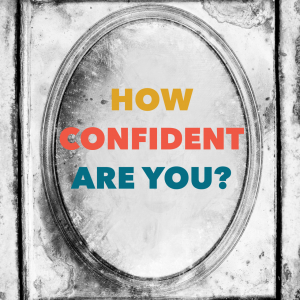 The Social Anxiety Institute defines social anxiety as the fear of interaction with other people that brings on self-consciousness, feelings of being negatively judged and evaluated, and, as a result, leads to avoidance. While it is a very serious illness that stems from a variety of reasons, most of us have had a bout or two with social anxiety in small doses.
The Social Anxiety Institute defines social anxiety as the fear of interaction with other people that brings on self-consciousness, feelings of being negatively judged and evaluated, and, as a result, leads to avoidance. While it is a very serious illness that stems from a variety of reasons, most of us have had a bout or two with social anxiety in small doses.
Even the best of us get episodes where we just clam up and get all nervous and sweaty when interacting with people. A little anxiety is healthy. It gets our adrenaline flowing and keeps us alert What isn’t healthy is when social anxiety interferes with important tasks like work.
Do your just smile and then skulk around when people gather around the coffee maker in the break room? Are you one of those people who shy away from speaking up at meetings? Are you scared to share your ideas for fear of being judged?
That’s not even the worst of it. You know it gets really bad when you feel like you just don’t have anything to offer, so you avoid sharing your thoughts altogether. This comes back to bite you when you get asked your opinion on a big company decision by your boss and you clam up or worse, say something ludicrous.
Don’t let that happen to you. If you have serious Social Anxiety you should see a doctor. For the rest of us who have mild communication challenges, take steps to boost your confidence and hone your communication skills.
Don’t take yourself so seriously. Everybody makes mistakes, no one’s perfect. Learn to laugh at yourself and lighten up. It won’t be the end of the world if your favorite color is red and the rest of the office loves blue. It’s not a problem if you like cupcakes while everyone else likes doughnuts. It’s not a big deal to tell your boss that she needs to extend the timeline on a project instead of cramming all the activities in a short timespan. Any leader worth his/her salt will take your suggestion into consideration in good faith, so lighten up!
Communication isn’t just about the spoken word but all about body language too. Avoid hunching your shoulders and crossing your arms. Straighten up your spine and roll your shoulders back. Hold that posture. Don’t you feel more confident already?
Avoid fillers. Don’t fill the gaps in your conversation with “um”, “like”, or “aaaand.” That just makes you sound like you’re either a teenage brat or that you’re not sure about what you’re saying. You can keep it short and straight to the point and no one will complain.
Don’t be a pushover. Have an opinion of your own. Don’t just agree because it’s the popular decision. Be assertive but not aggressive. Assertiveness says that you’re self assured, confident, and that you know what you want. Aggressiveness says you’re contentious and will fight for the sake of argument. Try this exercise with a trusted friend: argue an unpopular point like “why drinking soda can be good for you.” It doesn’t matter that it isn’t true, the point of the exercise is to make you comfortable with decision making and arguing the merits of a point.
Be a good listener. Let’s face it, we sometimes drift through conversations or oast along because we feel we can’t contribute. The point is to listen. What you gather from there will be the whole arsenal of what you can use to build your confidence and communication skills. It’ll give you the ideas for topics to sustain the conversation, give you the pointers needed to form an opinion, it’ll give you the leverage to get the other person to pay attention to you. Practice being a good listener.
Overcoming this challenge takes some practice but putting in the work beats getting caught with nothing to say.
Written by Jaie O.- The Help
Reference: https://socialanxietyinstitute.org/what-is-social-anxiety